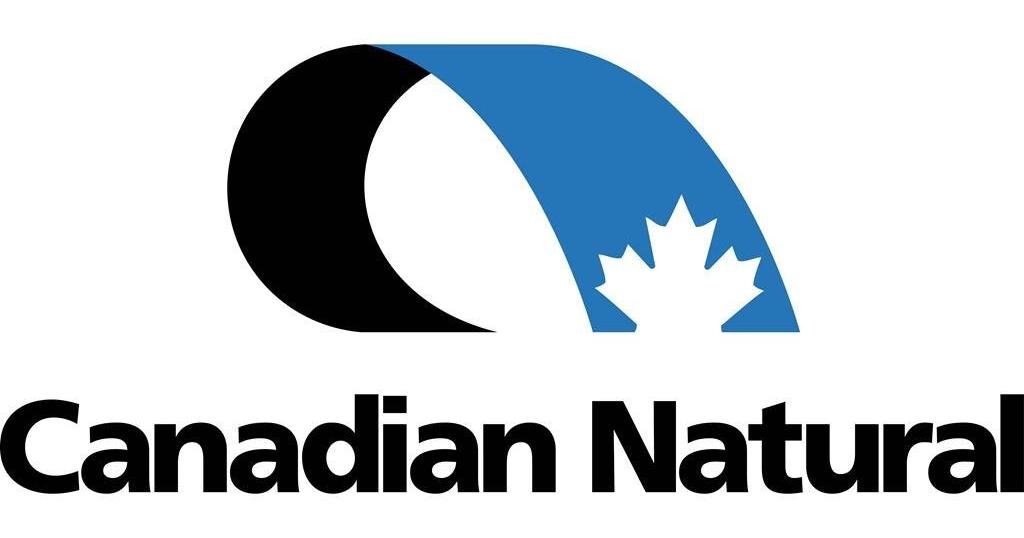CALGARY – Canadian Natural Resources Ltd. has signed a deal to buy Chevron Canada Ltd.’s interests in the Athabasca Oil Sands Project and Duvernay shale for US$6.5 billion.
The all-cash deal will see Calgary-headquartered CNRL — one of the largest independent oil and gas producers in the world — acquire Chevron’s 20 per cent interest in the Athabasca Oil Sands Project.
This includes a 20 per cent stake in the Muskeg River and Jackpine mines in northern Alberta, as well as a 20 per cent stake in the Scotford Upgrader northeast of Edmonton and the Quest carbon capture and storage facility, also north of Edmonton.
As a result of the deal, CNRL consolidates its control of the Athabasca Oil Sands project, increasing its working interest from 70 per cent to 90 per cent. Shell Canada owns the remaining 10 per cent.
The transaction adds approximately 62,500 barrels of synthetic crude oil per day to CNRL’s production. In a conference call with analysts Monday, CNRL president Scott Stauth said the Athabasca site’s close proximity to CNRL’s Horizon oilsands mine will allow the company to find efficiencies and optimize its production in the region.
“I can see us utilizing the equipment more efficiently between the two sites,” Stauth said.
“There will be production increase opportunities in the future at (Athabasca). The assets are similar to Horizon in terms of the reserve, so you can look for that down the road.”
With the deal, U.S.-based Chevron becomes the latest foreign company to exit the Canadian oilsands. Others that have made similar moves in recent years include Norway’s Statoil, France’s Total SA, and Arkansas-based Murphy Oil.
Chevron spokeswoman Jennifer Werbicki confirmed in an email that the company will no longer have interests in the oilsands following the close of the transaction.
She said Chevron will continue to have non-operated interests offshore Atlantic Canada and will retain its interests in British Columbia and Northern Canada.
Canadian Natural will also acquire Chevron’s 70 per cent operated working interest of light crude oil and liquids rich assets in the Duvernay shale play in Alberta. Production from those assets is expected to average 60,000 boe/d in 2025, CNRL said.
The company is already a large producer of natural gas and light crude oil, with a vast land base across Western Canada. Stauth said there are “significant” new drilling opportunities among the Chevron assets being bought, and added CNRL sees the potential to grow production to 70,000 boe/d by 2027.
CNRL has a history of expanding its asset base through acquisitions. The company acquired its existing stake in the Athabasca Oil Sands project from Shell Canada and Marathon Oil in 2017, and in 2019, it bought the Canadian operations of U.S.-based Devon Energy for $3.8 billion.
Its ability to optimize production through strategic acquisitions is one reason CNRL has been a darling of the investment community in recent years.
Not long ago, RBC Capital Markets analyst Greg Pardy called CNRL his “favourite senior producer” in a note to clients. Pardy said the company and other oilsands giants are benefiting from the additional export capacity of the Trans Mountain pipeline expansion, which came online earlier this year, and have better financial resiliency than ever before.
“We remain unapologetically bullish on Canada’s oilsands majors in particular,” Pardy wrote.
CNRL’s deal with Chevron has an effective date of Sept. 1, 2024, and is expected to close during the fourth quarter of 2024.
CNRL also said Monday it will increase its quarterly dividend to shareholders by seven per cent to 56.25 cents per share starting with its next regular payment in January 2025.
Both Chevron and CNRL’s stock prices were trending higher Monday. CNRL shares were up 3.89 per cent of as of midday, while Chevron was up 0.58 per cent.
This report by The Canadian Press was first published Oct. 7, 2024.
Companies in this story: (TSX:CNQ)
